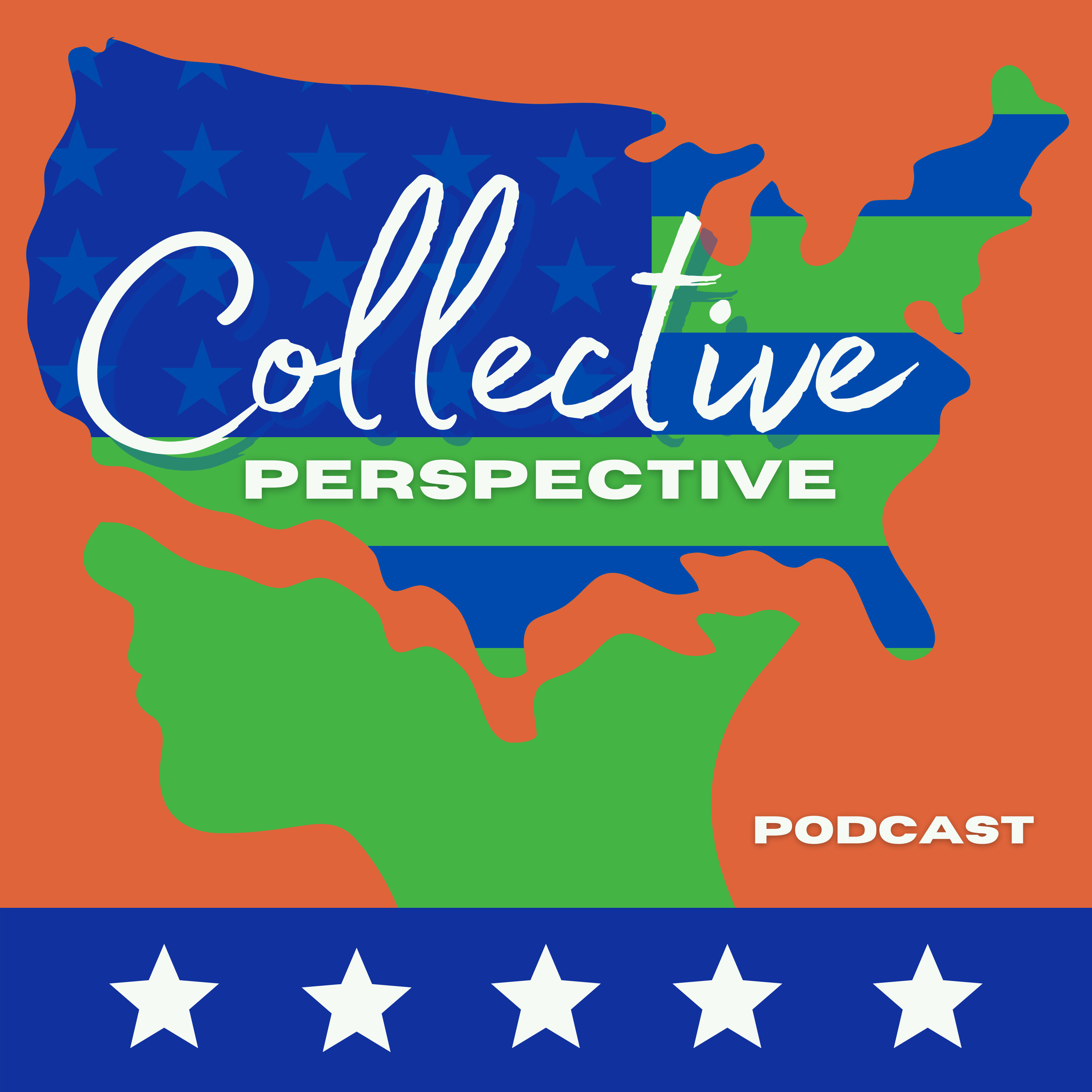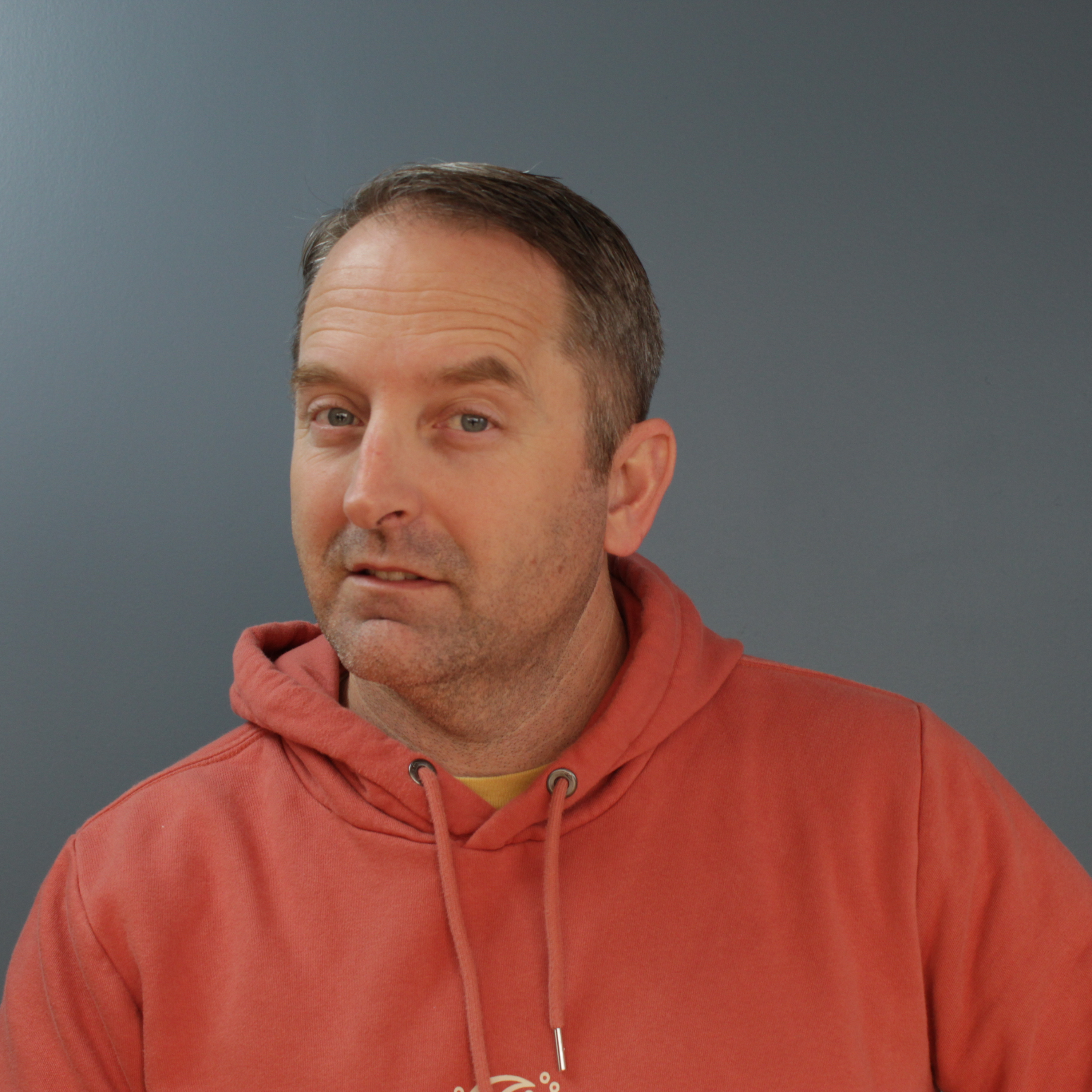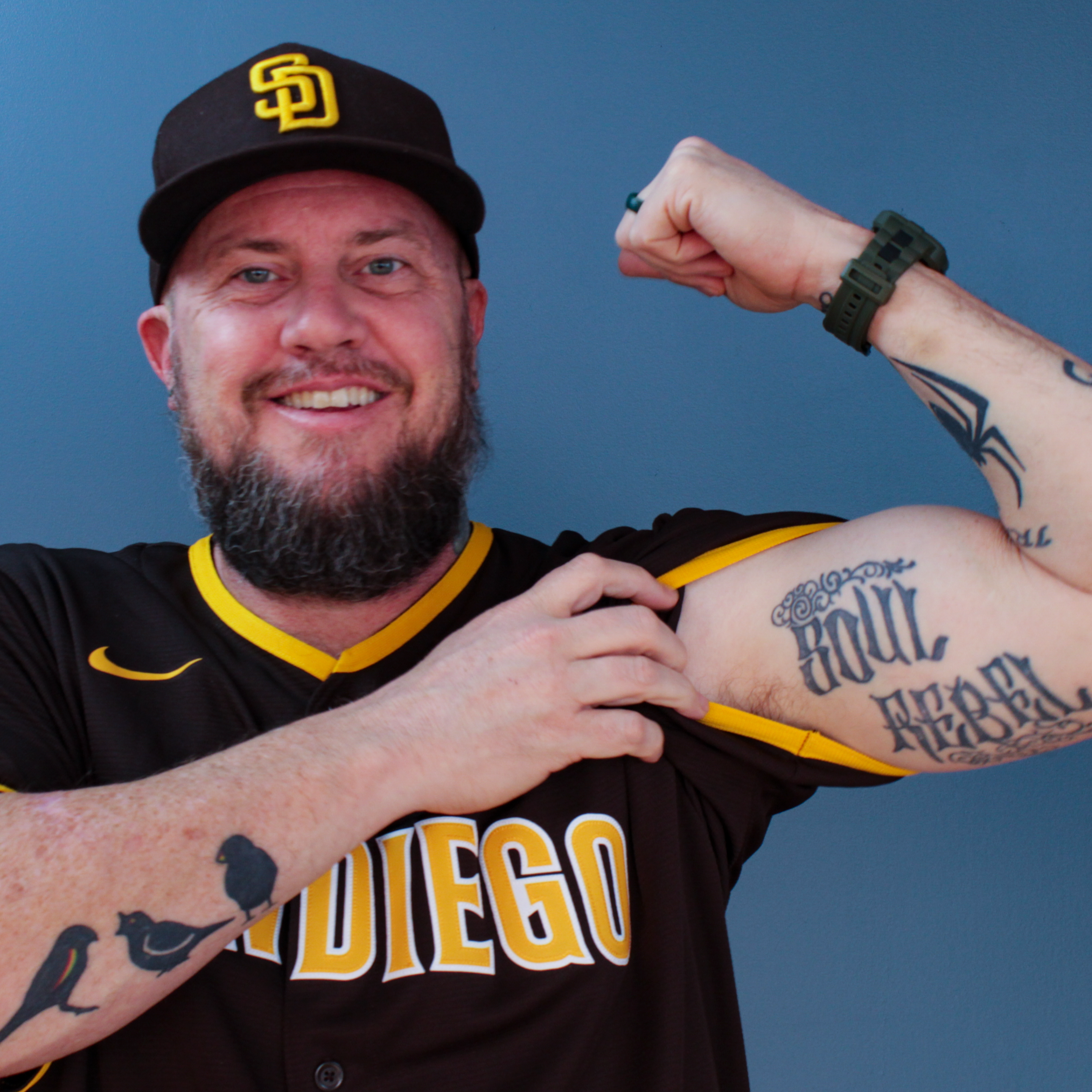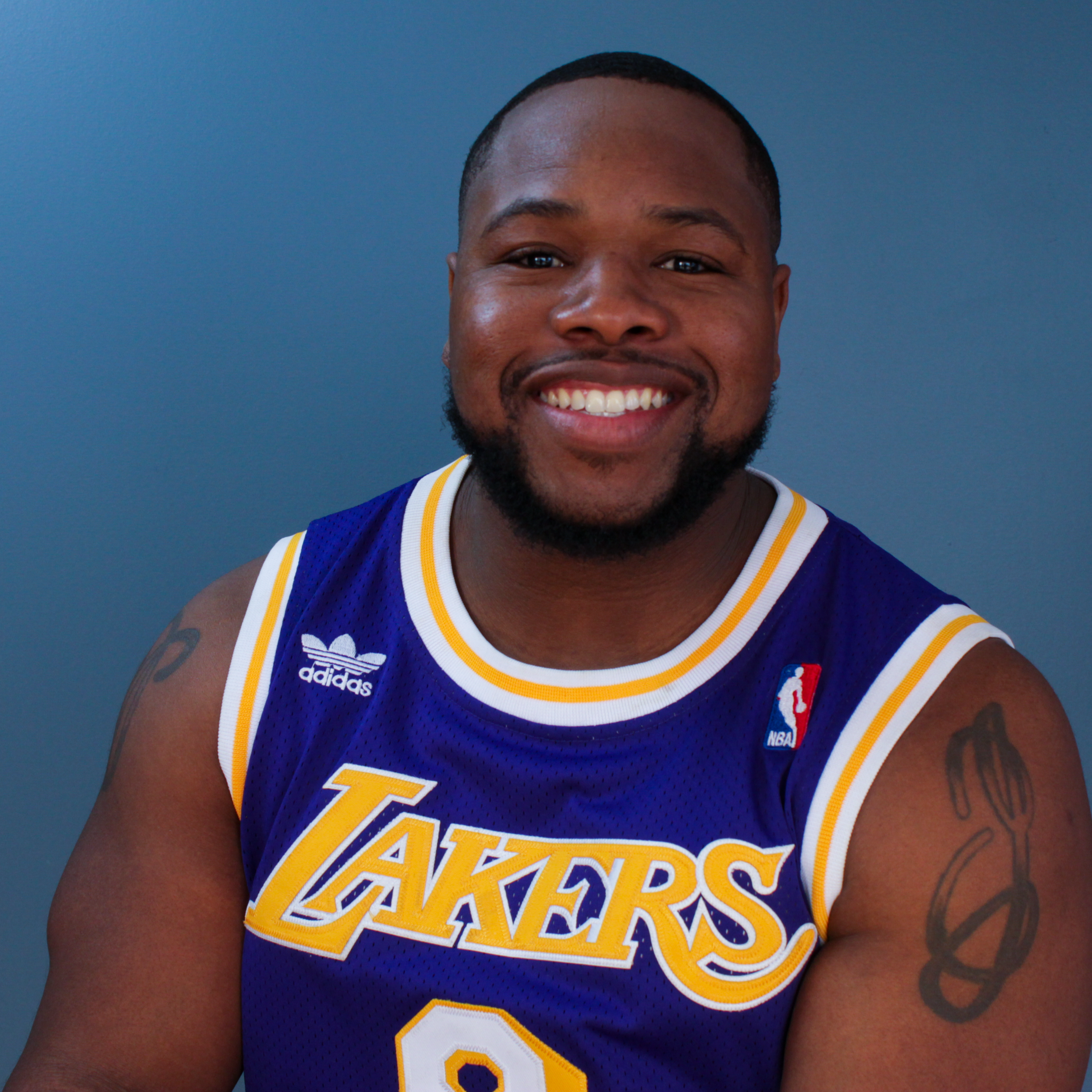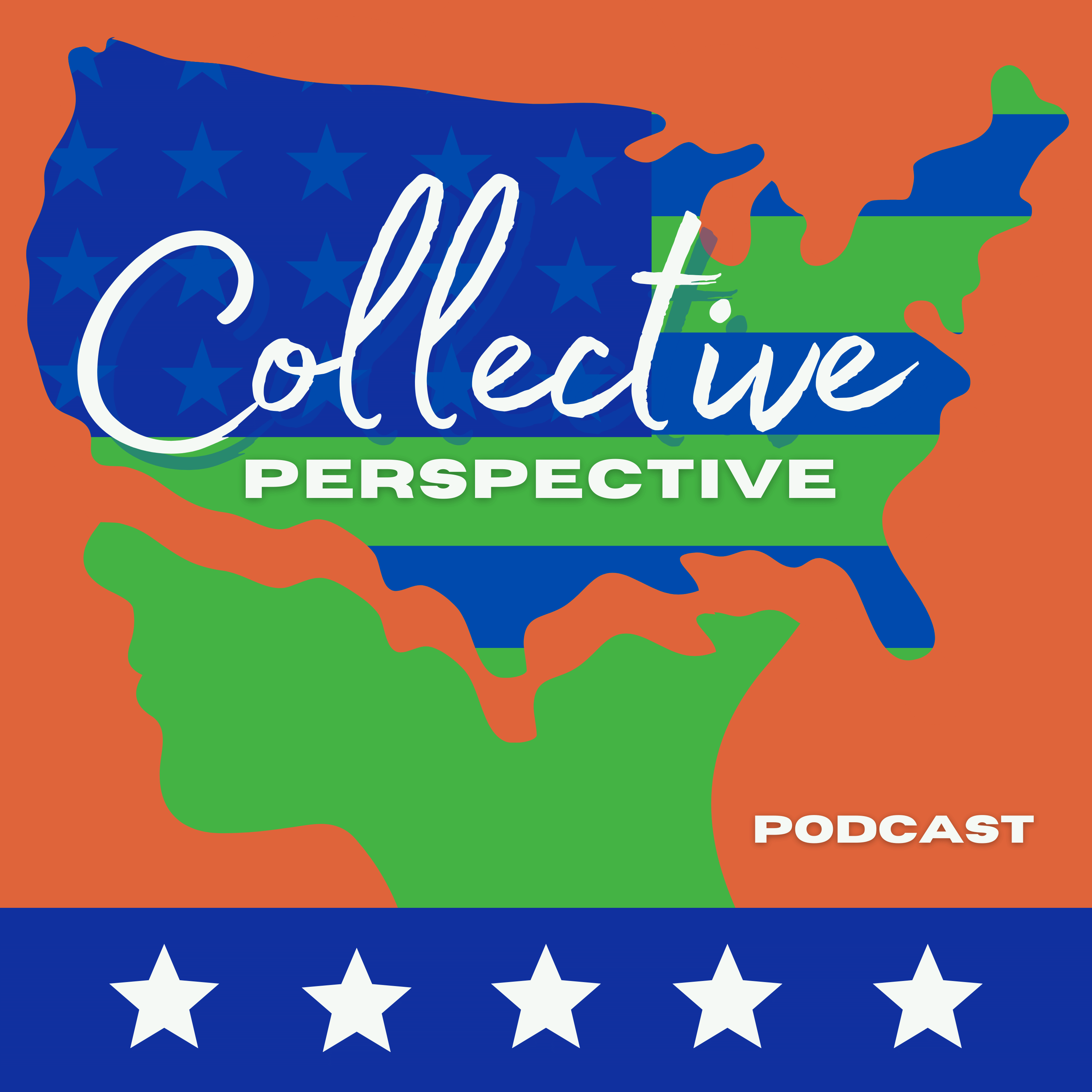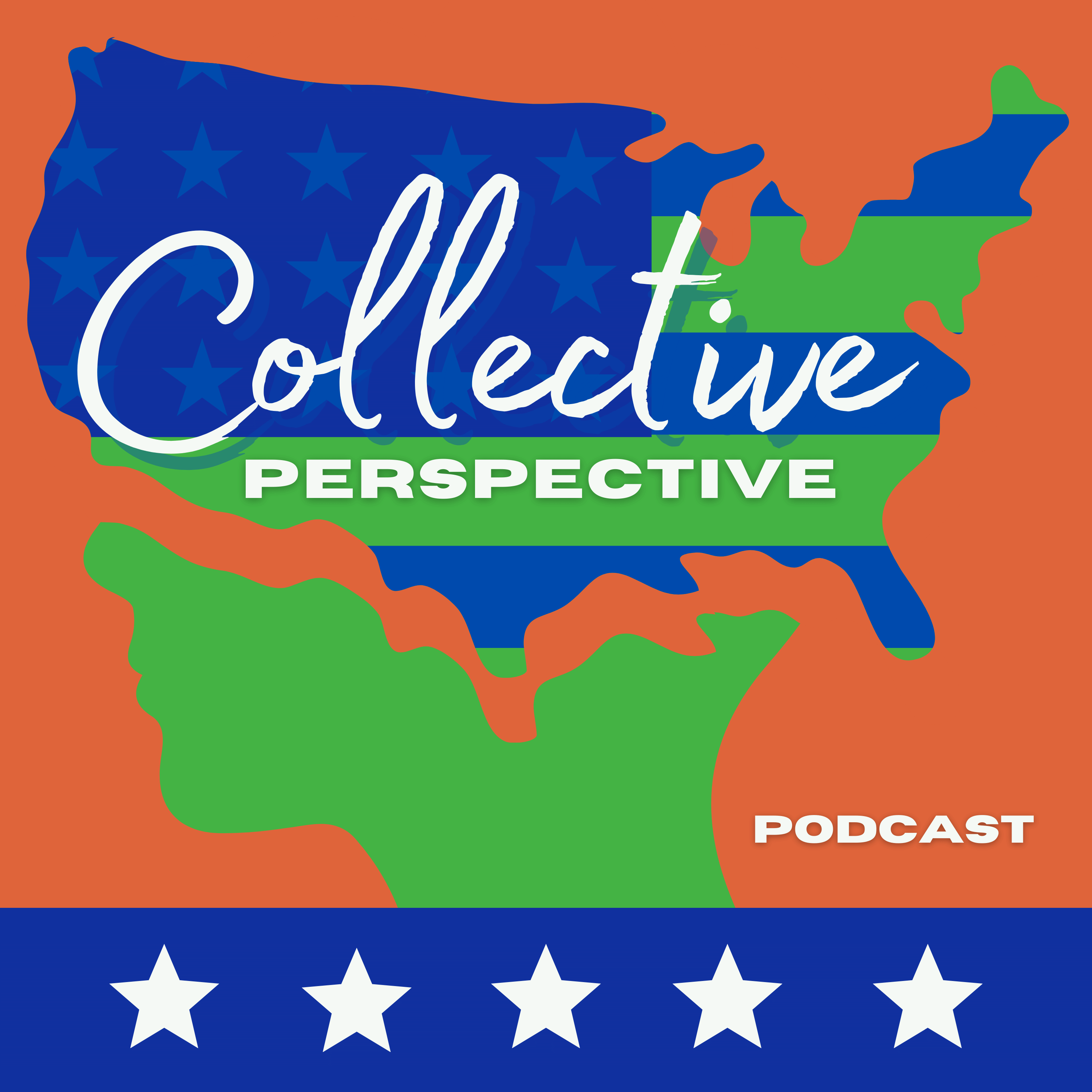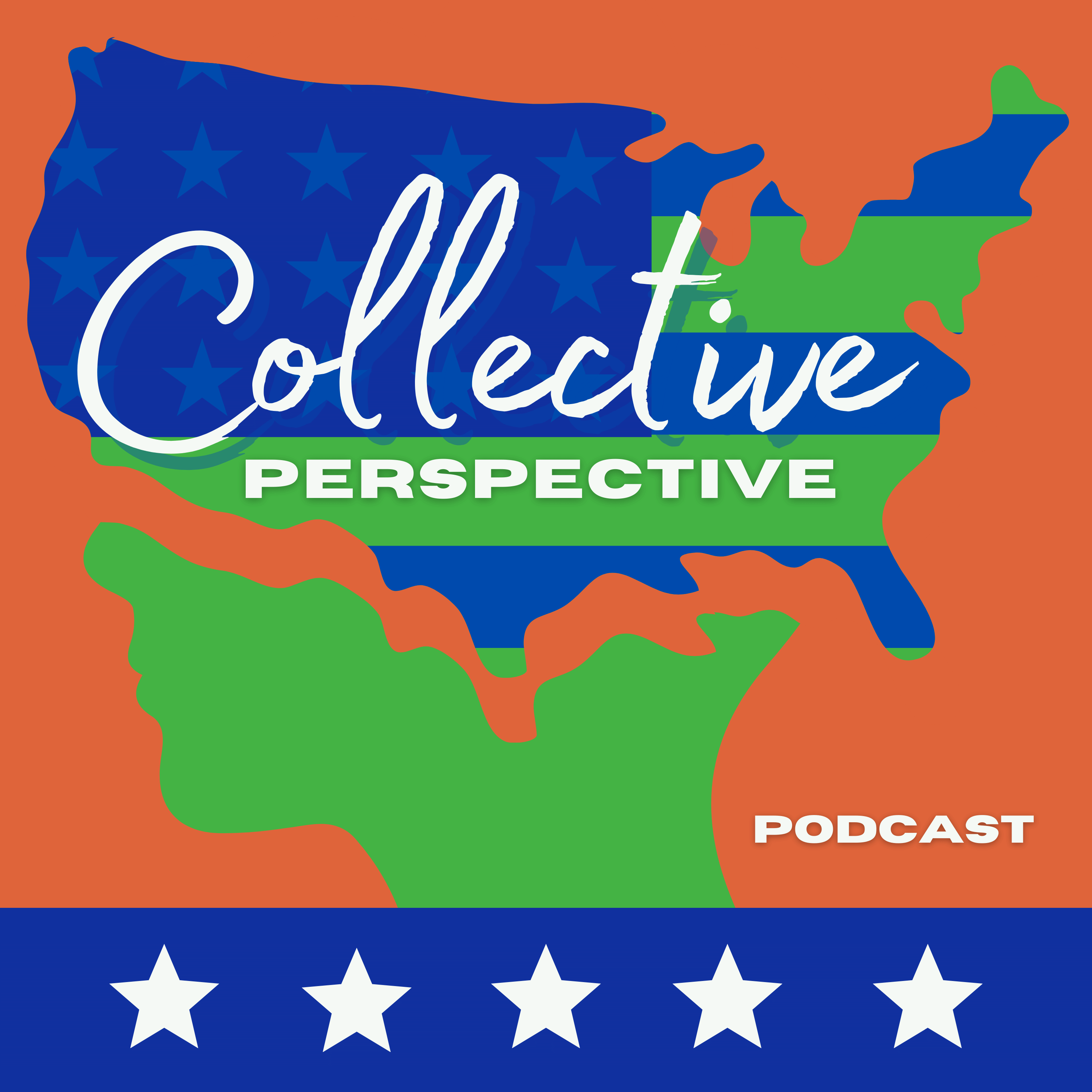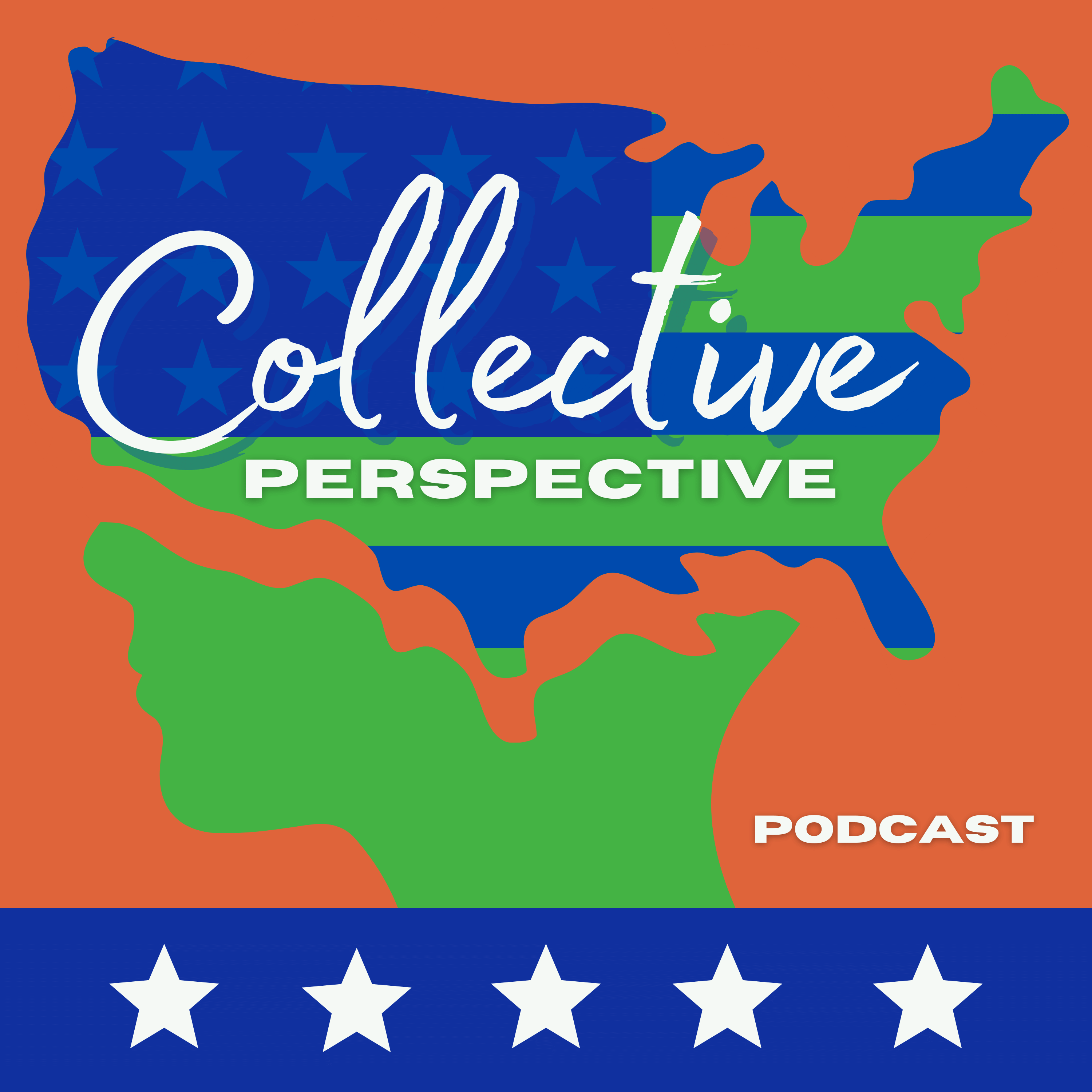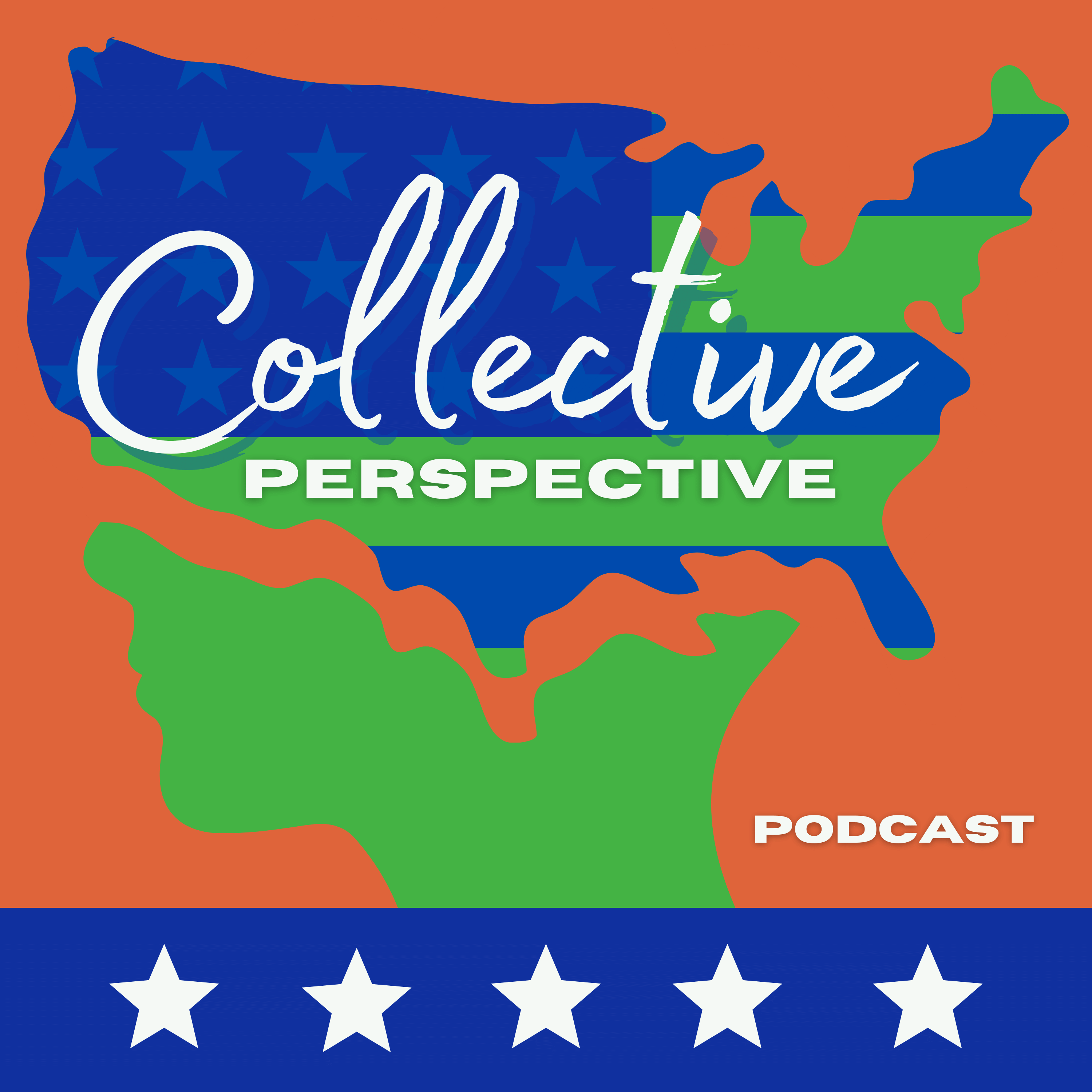Episode Transcript
This isn't just a podcast, it's a reminder. A reminder of what makes America Stronger isn't a headline or a hashtag. It's people from the ones building our homes to the ones rebuilding their lives, veterans, tradesmen, neighbors and volunteers, real people doing real things. Here we find common ground first, and then we work on our differences.
This is the Collective Perspective podcast where purpose, people, and progress.
Hey everybody. Welcome to the Collective Perspective podcast. I'm your host, Jeff Aldridge, and I'm here today with my co-host Travis Eons. Hey, Travis. What's up? Hey, everybody. What's going on? And as you can see, we're on video now, episode 51. What do you think about that, Travis? Uh, this is gonna be interesting.
Let's see how it works out for us. So what we decided to focus on, uh, moving forward is our strengths, our strengths as a country. And, uh, let's talk about, Hey Travis. What do you think, uh, strength is? Uh, you know, I, I think strength is, it, it can be, um, any, uh, many different things from physical strength to mental strength, uh, how well we overcome adversity and as, as a country and or as a nation, what makes us stronger?
Uh, I think, um, the strength could be how well we are, uh, prepared to do things on our own. I think anytime, uh, a team is working on something, they need to work on their strengths and then they can overcome their weaknesses and the weaknesses are easier to identify. So I would say some of the weaknesses is that we're having in this current climate.
And you can pick whatever side you want. Uh, but the biggest thing is division. Yeah. I do feel like the, the, the country is polarized or di divided, uh, but what are you, what are your thoughts on the division? I think division is the only way that the United States can be destroyed, uh, can be annihilated or taken over.
And I honestly feel that that's kind of where the world was headed. You can kind of tell by the results of a lot of things in current political climate. Yeah, I, I think that, uh, yeah, we were heading in a very different direction and, uh, I think now things from, for, for some perspectives, uh, could be heading better, but, uh, I, I do believe that that division is still there.
Uh, instead of finding out what it is that's dividing us, maybe we should be looking at. What we have in common, and then trying to overcome those divisions. Another thing too is burnout. A lot of, uh, a lot of, uh, someone's game plan or uh, uh, agenda is to burn you out with too much information or too much propaganda or too much of the wrong information.
Just kind of overloading it. Overloading you until you're, until you succumb to whatever message they're delivering on either, no matter who it comes from. And let's face it, man, it causes a lot of stress in everybody's lives to always continually keep up with the political climate. We do need to get away from that and, and relax and enjoy what we do again.
And another thing too is like even my wife was telling me. Uh, she, she was upset the other day that you, you care more about, uh, what's going on in the world than some other things. And it really struck me hard because I was like, you know what? Those are the things that I don't have control over. I. I am letting a lot of that, uh, information occupy my mind.
I can see that. I think when I'm not at work or Yeah, when I'm not at work, I, I do focus on a lot of that as well. And yes, I do need to get that away from me and focus on what's really important to me. I honestly watch Kill Tony every night to go to sleep. It's just ripe up the monotony. It's all comedy.
That's pretty funny stuff. I watch a lot of that. So, uh, I, I think if we stopped, uh, focusing on what's broken and started noticing what's holding things together, can you gimme an example what you think might be holding us together? You can put it down in the comments below, but Travis, what do you think?
Um, you know, I, I think what holds us together is our, our local teachers. Uh, maybe some of the. The, um, volunteers. I think the quiet strengths, the, the quiet strengths, the ones that work behind the scenes, you know, volunteers that get out there and do something not for the praise, but because they feel good about it and it makes, uh, it, it, it, it is a true grassroots helping of somebody.
You know, what's annoying to me, man, is like those people on. Uh, Instagram or social media that go out there and they go, Hey, do you think you can loan me a dollar? And then they end up giving the person a hundred dollars or the do something crazy. I, I don't think you need that type of recognition. I don't understand the, the, uh, the agenda behind that.
The click bait kind of thing. Yeah. They're really just trying to get money off your emotions at that point, I think. Uh, yeah, I, I don't think that that's like true volunteerism. Uh, well, it's not genuine either. Correct. Not genuine. There you go. Kinda has that wrong motives. Yeah. Uh, wrong motive behind that type of, uh, generosity, if you will.
So I think we should get back to defining what strength is a little bit better, um, beyond muscles and the flags. Um, explore the moral strength of the community and the mental strength of the pre, uh, perseverance and the social strength of unity. Um, so the moral strength of the community, uh, would that be where we currently live, uh, like our local community or our neighborhood community?
I think it, I think it starts with our families. That should be the moral strength of our community, husband and wife and children. And that's where we need to focus to get that strong again, to build up that family. The, the nuclear family unit. Yeah. I mean, no matter which way you put it, man, uh, to have a parents in your life is, is a huge difference.
Uh, having them present in your life is even bigger. So you can be a provider and you can call dad and. You may be a workaholic and your kids never see you. So, uh, while you're providing, um, a living and, and a life for these people, you're not providing a, a mental stability, uh, for your kids. It actually being there for them and helping them grow as a, as a human, pick 'em up.
When they fall, when they get hurt, you pick 'em up and. For example, today, Gavin, my son, said he wanted to make his own peanut butter and jelly sandwich today. And my first thought was like, oh my God, man, are you kidding me right now? And there was a huge glob of jelly on one side and a huge glob of peanut butter on the other side.
And at first, my first response was to really get mad at him. And I said, wait a minute. Maybe I should just teach him on how to make a peanut butter and jelly sandwich. I, I feel that because I've gone through that with my son too now. I was on an aircraft carrier for three years and I ate peanut butter and jelly sandwiches 'cause I didn't wanna wait in line for the other food.
That was horrible. So I was an entrepreneur or uh, a connoisseur of. Peanut butter and jelly. So the peanut butter and jelly literally would be that thick in between with peanut butter and jelly. Oh my god. With the bread. Just the bread was an afterthought. Like it was a burger. It wasn't a, a bread and peanut butter and jelly sandwich.
Just the peanut butter and jelly sandwich. Okay.
Uh, so, but anyway, I taught him how to make one today. And if you don't know it, the secret to a good peanut butter and jelly sandwich is peanut butter on both slices of bread. Did you know that? I think you've told me that before, but I've never tried it. You know, because if you only put it on one, the other side of the bread, the jelly side becomes soggy and bleeds through the bread.
But the peanut butter acts as a layer for the bread, and therefore now the jelly's in between two layers of peanut butter. See, my thought on that is peanut butter and jelly science, would the, would, would the jelly just squared out because it doesn't have the friction from the bread to hold it in place?
Because peanut butter's like a glue. I don't think you even eat peanut butter and jelly sandwiches. Yeah, I'm not a peanut butter and jelly sandwich connoisseur like you. But I, I had a similar question asked by my son today. Uh, about, um, which is here, by the way. Yeah. He's, he's given us a hand on the switching today.
Learn trying to, that's part of the crew. Learn something new, which is, which is great. Um, what were we talking about Logan today? Yeah. Uh, related to asking for help. Um, gosh, I, I had it in my head and then you went off on peanut butter and jelly there for a minute and I, I kind of got hungry again. Like, um, from your life experience?
No, there was, there was something else that we were, uh, going to discuss about. Um, why did you bring it up if you didn't remember what it was? It, it was, it was about how, why, because it was there. I think it was food related beer tacos. We were talking about that. No, I think it had to do with making, uh, eggs or something.
And I, I, I'd always, uh, get onto 'em about it and, no, I, I, I, I. I understand. Oh, now we got it clear. It's the egg story. It may be the egg story where the pan wasn't cleaned right. It's a cast iron and you know, just leaving all kinds of oil in there. But you're right, though, the first instinct is to get mad at first, but I've never had a father figure, um, on a, in a, as a day-to-day, uh, influence on my life.
I'm trying to get back to where we were with, uh, making the family, uh, strong, the fam moral strength. Um, so recognizing that and stopping and saying, Hey, you know what, let's, let's call him down here and let's show him how and, and have him do it and make, make it himself so he can get that. Oh, that's what we were talking about.
Experience. How do you He asked me, how do you know all these things? Hold on before you start, remember at dinner I was saying. I better, I'd rather be inex. Uh, experienced than inexperienced. Correct. Okay. And that's kind of leading into this right here too. It's kind of ironic that you, that we had this conversation before we came over and you brought that up, but he was a.
He asked that, well how do, how did you get to know all these things? And I said, well, did you say, 'cause you're old. That wa that was part of it. That was a short answer. But it, you been around the sun 48 times. Uh, that's exactly what I said. I've been around the sun 48 times and you, you learn a thing or two and you know, it's, it, it really is experience and trying to teach that to him.
How does he get experience if I'm always telling him no, or don't do this, or don't do that. He does need to get that experience. So we tried to, um, last night was making steak and eggs. We had steak, eggs, and asparagus. So I wanted to, uh. Really show him how to make a good over easy egg without breaking it and making a big mess in the pan because it, it, it takes experience.
You gotta try, you gotta practice. He's practiced quite a bit now and he is getting a little bit better, but I was there for him and I was able to teach him and walk him through it on that last little bit. So that's now a strength of yours. You know how to make an egg. Good job. Mm-hmm. I've known how to make an egg.
It's just recently, it's gotten a little difficult. I guess the point of the whole thing we're trying to say is that, uh, family is the core of where you learn all you and where you can make mistakes and not pay dear for it. And uh, and that's where parenting, good parenting I think is the core of, uh, you know, an interesting thing I I asked you earlier this week was, do you know the difference between tyranny and fun?
No, you asked me what's, oh, yeah, right, the opposite of tyranny and I, what's the opposite of tyranny? And I said, uh, initially I said an anarchy or laissez-faire, depending on what it was, but what tyranny. But I, I didn't have any other prompt or any other direction to go on. And that was my first thought was anarchy or laissez-faire.
Leave it alone or no, no government, no. No one overseeing anybody. Now, I'm not gonna take ownership of coming up with that concept, but I, uh, was listening to Jordan Peterson, and I don't know if you care for him or not, but so what I came across and I was watching Jordan Peterson talk or watching him talk.
Yeah. Uh, and. Uh, basically he says, fun implies freedom of choice and joy. While tyranny implies control, coercion, and fear. And here's a breakdown. Fun is voluntary. Tyranny is forced. Fun involves creativity and play. Tyranny, suppresses expression, fun invites participation and inclusion, tyranny, demands, obedience and exclusion.
Fun thrives in freedom. Tyranny exists through restriction. So in a nutshell, if you look at it, having fun and being playful and, um, expressing yourself, having fun and laughing makes you stronger human being. Uh, it also has to be where, and this is where I, I'm kind of going with all of this, is that.
That's kind of where we have to meet in the middle. If we ever wanted to have true unity and um, peace in the United States, it's to come and find where our common ground is. And that's having fun. We all want to have fun. Lindy, Cindy Lauper said, girls just wanna have fun, but boys do too. And uh, see there we are being fun.
Um, but. Um, Travis, if I asked you this question, who is the strongest person you know, and they don't even realize it? You know, I, I don't think I've ever been asked that question. Um, who would I think would be the strongest person I know? Uh, I really. I, I think my, my gut instinct would probably be my wife because of the things that she's gone through, where she's come from, what she's had to go through and where she, what, what she accomplished in her career.
Uh, you know, coming from a very. As, as it were, tyrannical or, uh, communist type of government, uh, a communist type of country. Uh, and immigrating to the United States. She's really seen a lot of adversity and she's come out on top. She was able to go to school, get, uh, college education and start a career.
Uh, or start working in a field that she just wasn't into and then joined the military and made great strides in the military. She did very well and became a nurse and is still, uh, doing extremely well. So, yeah, I, I'd say my wife is one of the strongest people I know. One of the things that. I, and if I may though, that's not a physical type of strength.
I think that's more of a mental strength for her to be able to overcome all of that adversity in the beginning and then persevere. Like when she came to the United States, she didn't even speak English. Uh, she was a eight. Between eight and 12 when she got here. And then. Became, you know, then learned English and, and, and made it as far as she did in the military, in her career.
And now we have a wonderful family. That's great. I, I say that your wife is the epitome of what it means to become an American and to be an American first generation. I can honestly say that, and I have documentation through my family and I'm not boasting, but I was on the fleet right after the Mayflower.
My family, I can trace my family tree all the way back to that. Uh, so my lineage is decades, really long. What? What? Centuries. Centuries, um, his wife's is her. Yeah. Coming here, her coming here. I, I think that's absolutely incredible and I think that was a good answer. Well, thank you. Anybody that you have.
Yeah. And she served our country like 20 years, served our country 24, 24 years, served our country and is still working for her. Yes, she is. Wow. Incredible. So that kind of belittles to what we do, right? Uh, I mean, I make things sound better. Uh, you make people feel better, hopeful, feel better, hopefully, but, uh, what do we do on an individual basis that makes America stronger?
I, I would say it's those things. It's, uh, being good fathers. Yeah. Yeah. Being good parents in general, I think is, is really what, what, what that boils down to and. Having now, again, this is a different type of strength I think, but those learning moments, those teaching moments in within the family, uh, need, it takes strength to not want to jump straight to discipline or straight to being the aggressor and like showing dominance.
Yes, we are the parent, we do make the rules in the family. But we also have to know when to assert that, that, that, that strength, that's a different strength, but you have to pull back and say, all right, let's, let's learn something now. Let's, let's teach something now to the kids. So basically what you're saying is you need to learn how to also have fun with your kids and your family.
Yeah. I think those type of dynamics is really important to be able to, to have a a, a solid foundation. And fun. And so starting locally, I think that's what helps make, uh, America stronger from the inside. But then as a collective in, in our communities, how do we make our communities stronger? What, what is that, uh, that we do that makes them stronger?
Well, I would say you gotta go out and vote for community leaders. Uh, but there's all types of things. You can join sports. You could go to church, you could be on a, what's your adventure off-roading thing you like doing? That's a community and it's, uh, finding common ground. That's what those people are doing.
They're finding something that they're common with and they come from all walks of life. And they meet in the middle. You know, that's, that's a great point. E even within the offroading, what, what I do with, in, in my spare time going offroading, uh, a lot of the guys are engineers or they are metal, metal workers, uh, welders, fabric fabricators.
A lot of the guys in that type of a community, they, they are tradespeople and they do pretty well for themselves.
So, hey listeners, if you're out there, I ask you these questions and you can put 'em down in the comments below. Who is the strongest person you know and they don't even know it? Also, are you focusing on too much of what divides us and not enough on who, who's still building? I think if you. Dissect that question a little bit.
You'll see that if you're focusing on too much of what divides us, I think you're on the wrong path. I think you need to find, uh, what is continuing to build and we need to be positive and and move on.
So please put your comments down below. Hit, like, subscribe. Please share, especially if you're someone, uh, who has just subscribed. Please subscribe and share. Why are you smiling like that? Why not? Okay. Having fun. Whoa. That, that, that's, that's what we're doing. Having fun. Also, recommend a guest. If you have a local hero in Jacksonville, uh, we'll even maybe entertain a Zoom.
Uh, we want spotlight them. So hit us up in the chat. Hey everybody, thanks for watching this episode of The Collective Perspective Podcast. If you have any comments or suggestions, uh, put 'em down below. Thank you for watching. Peace Out.
